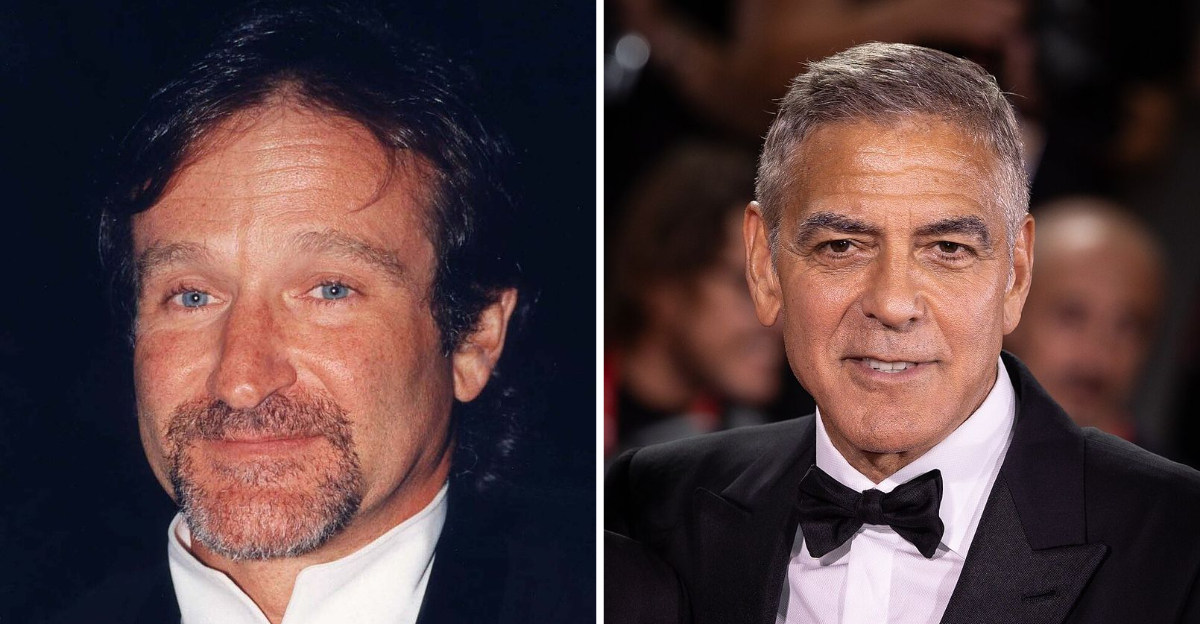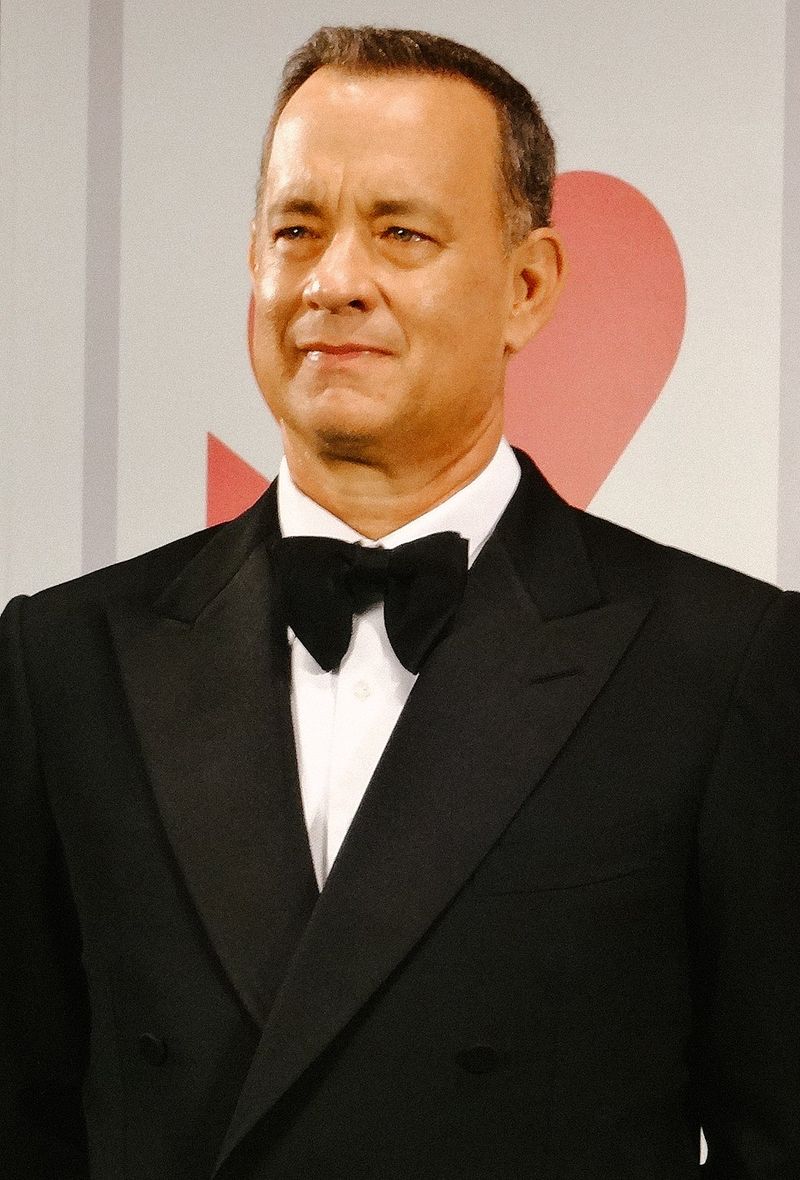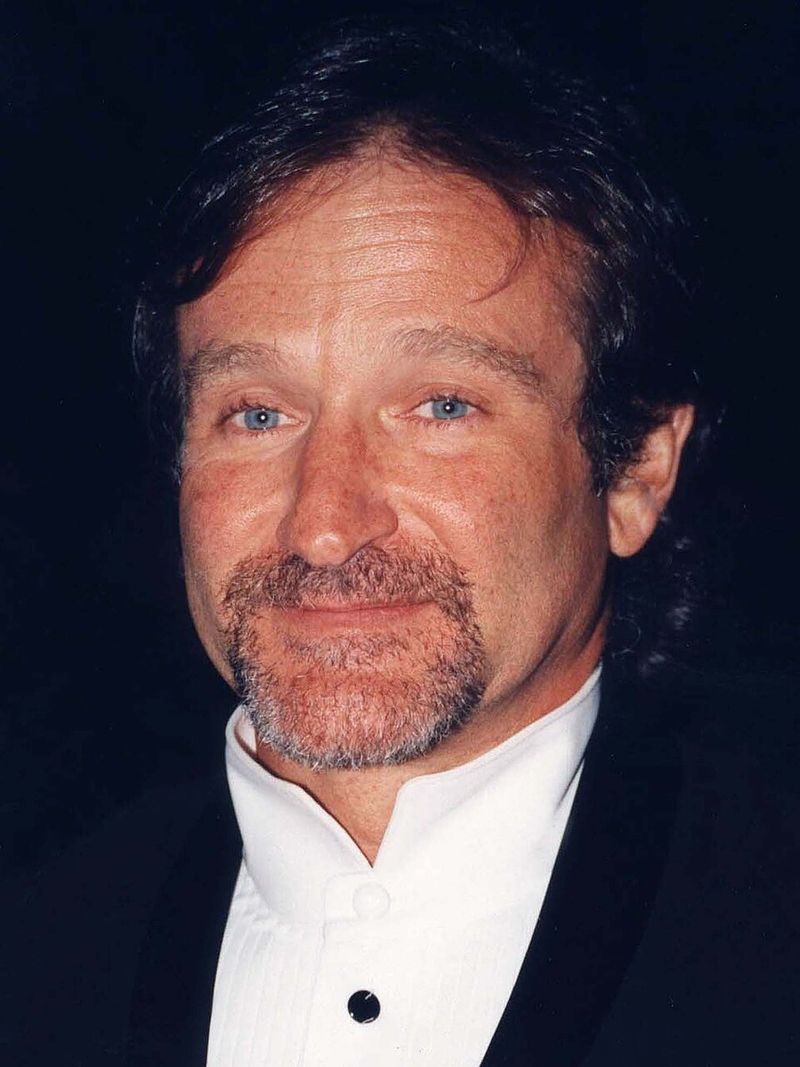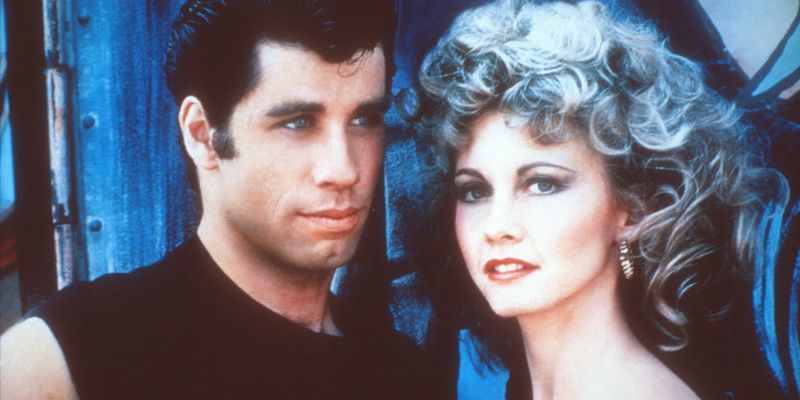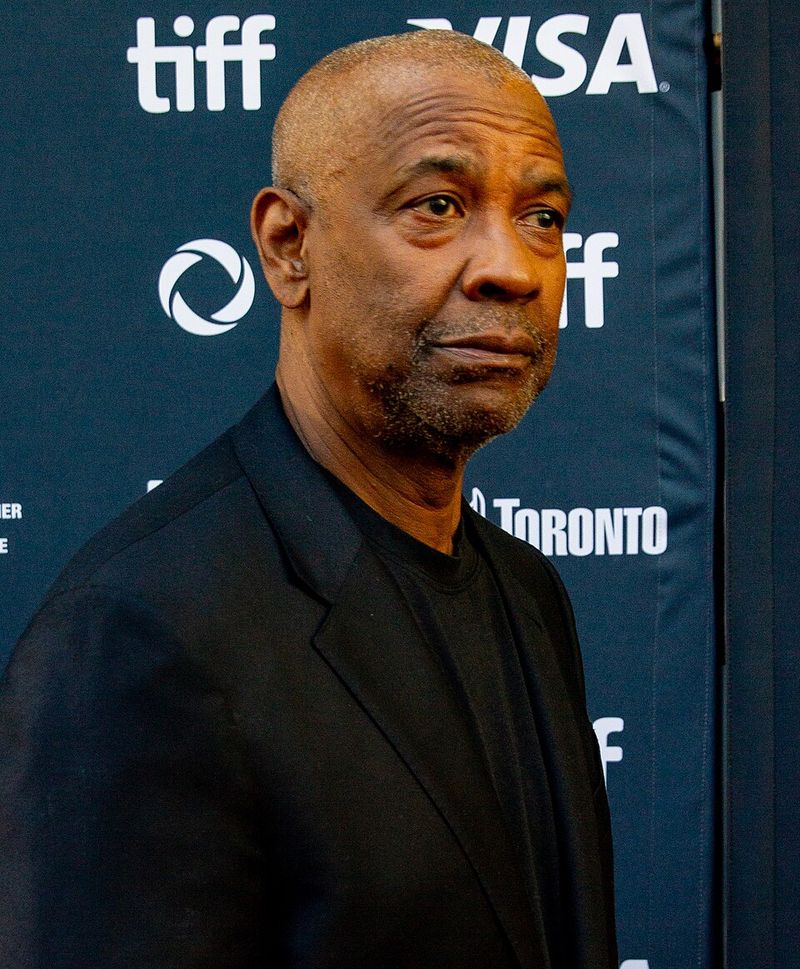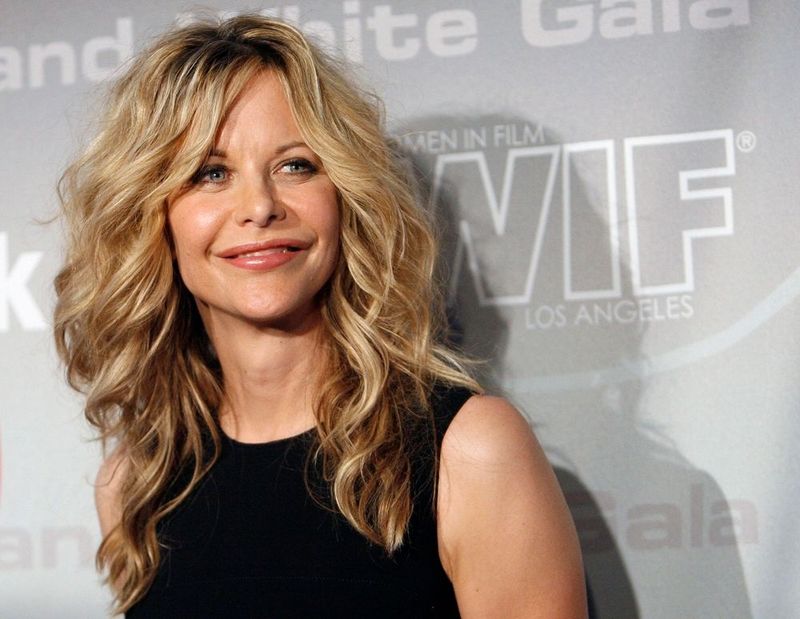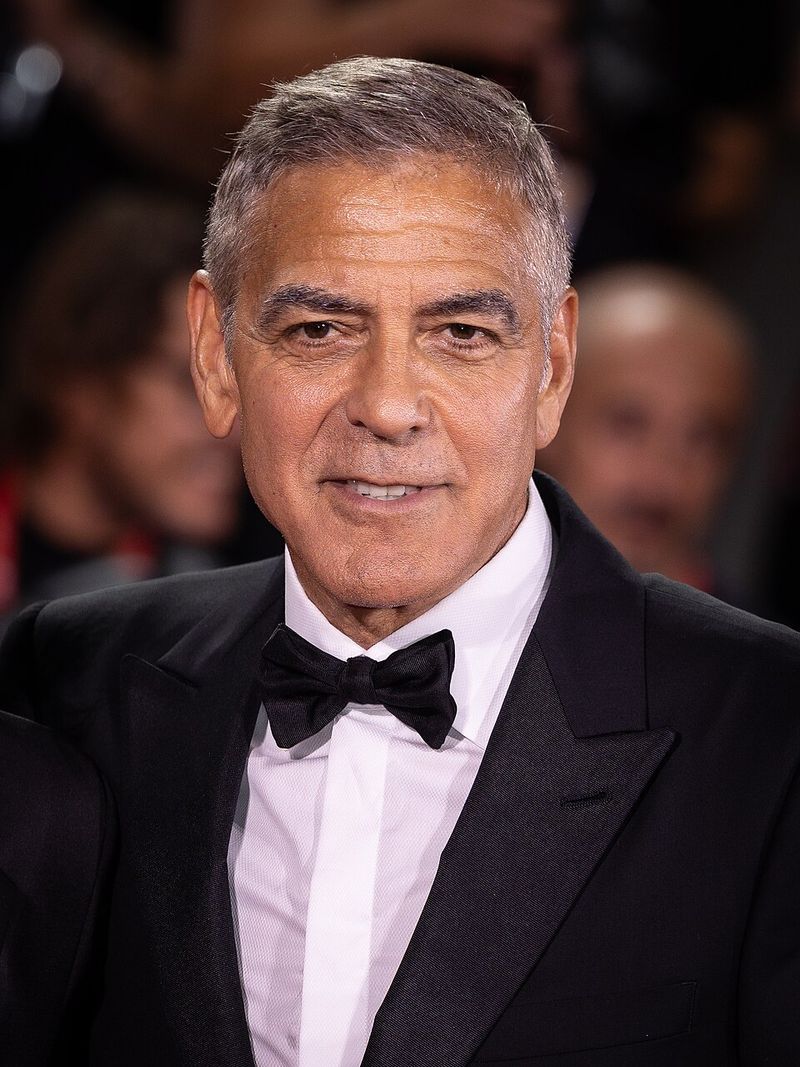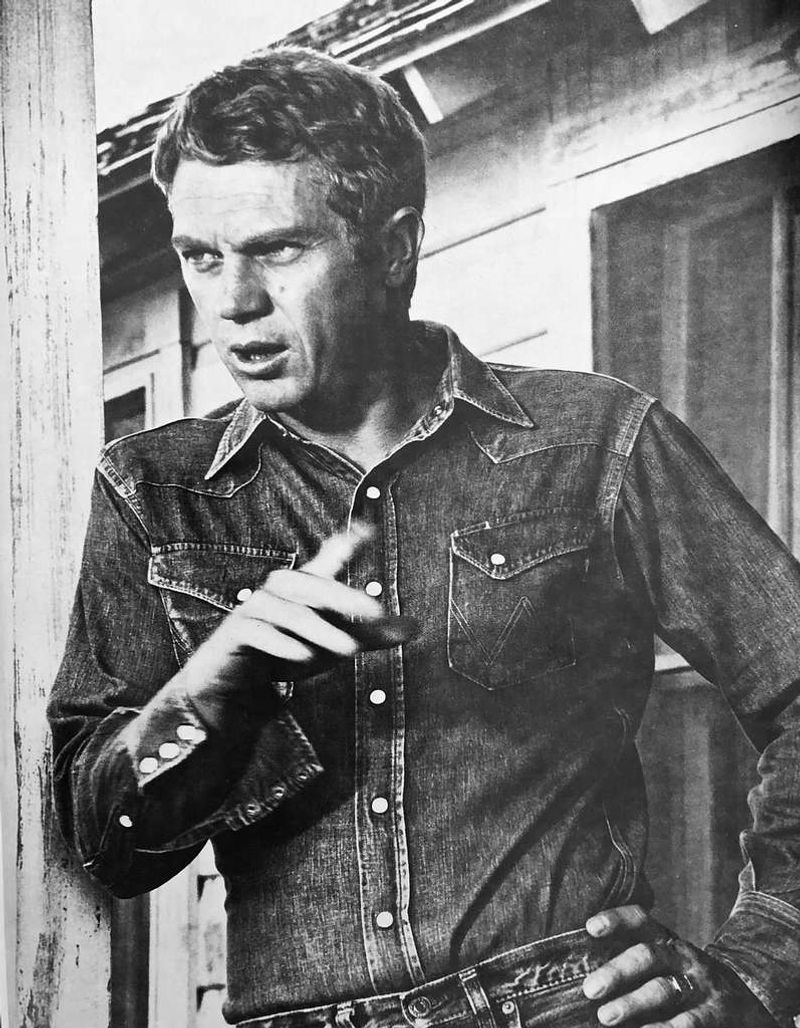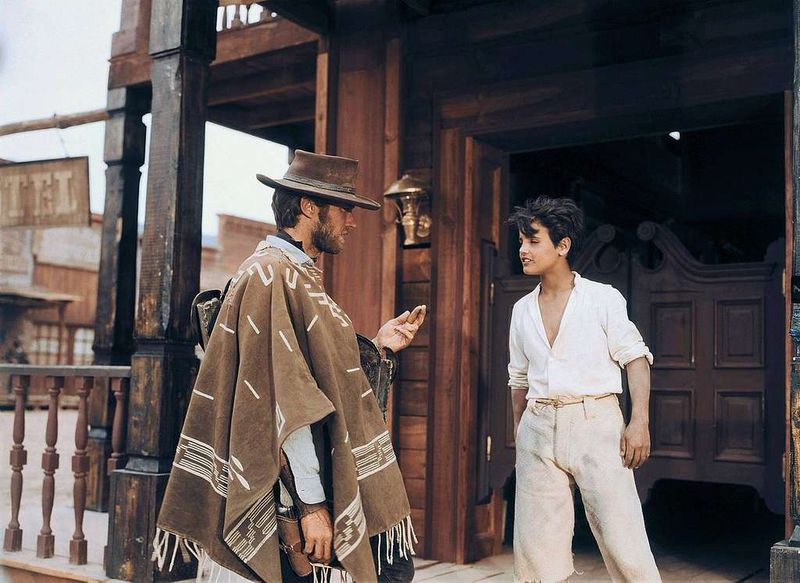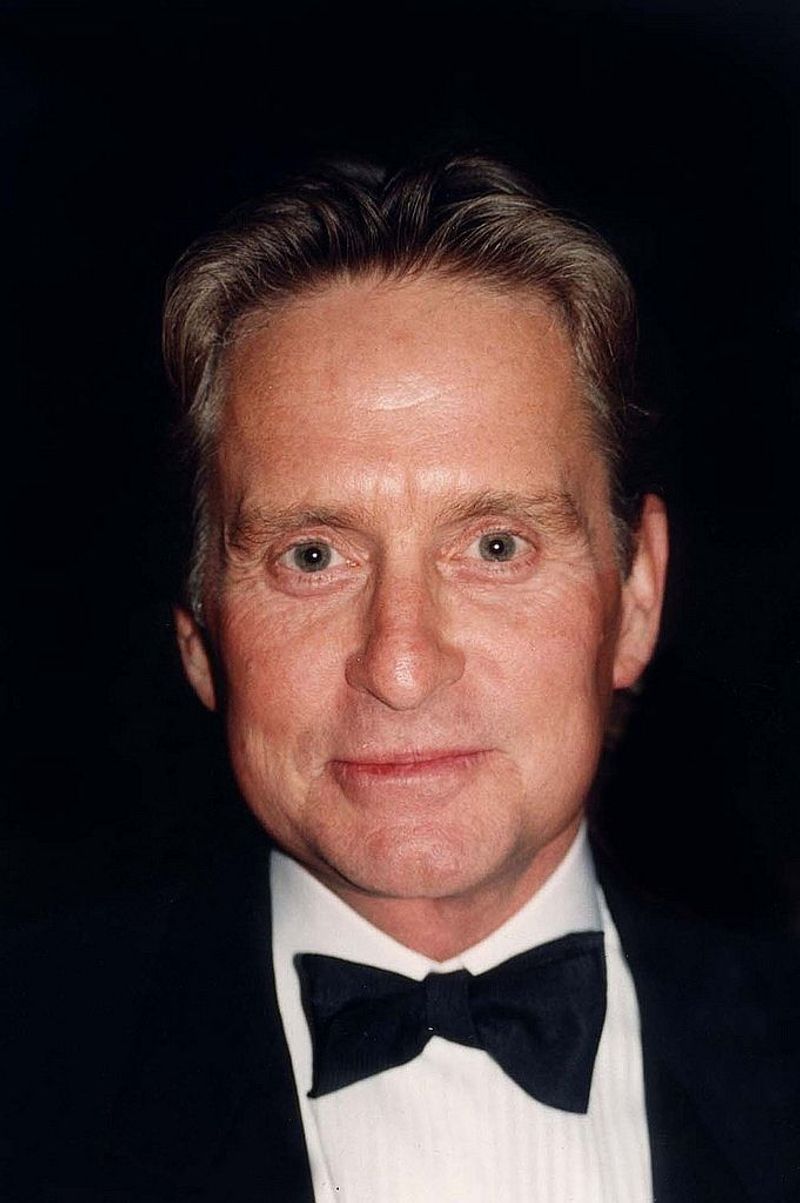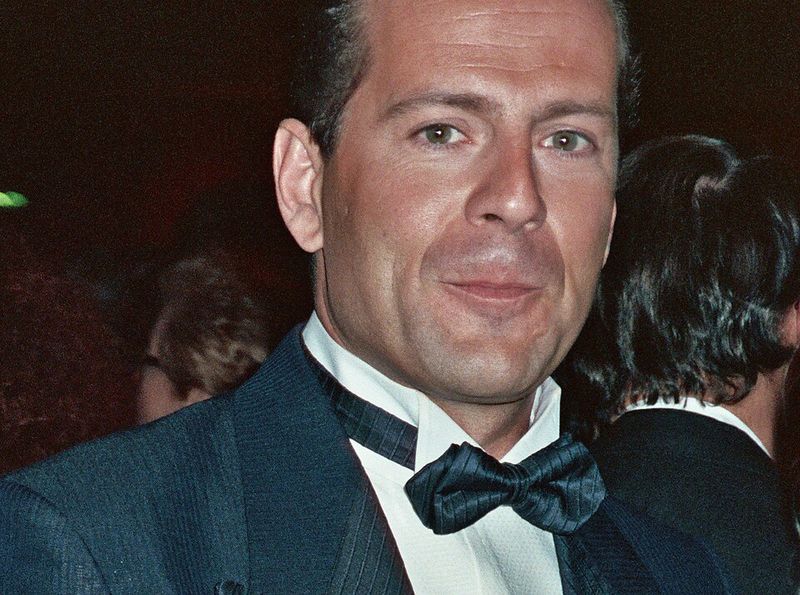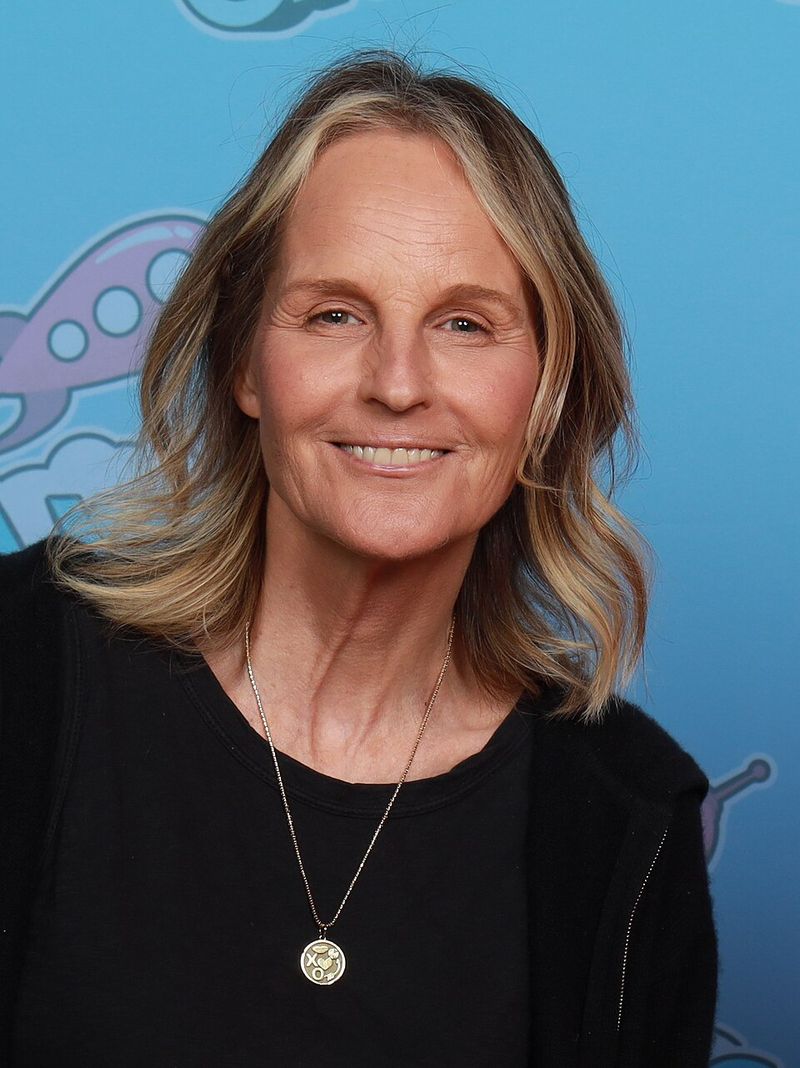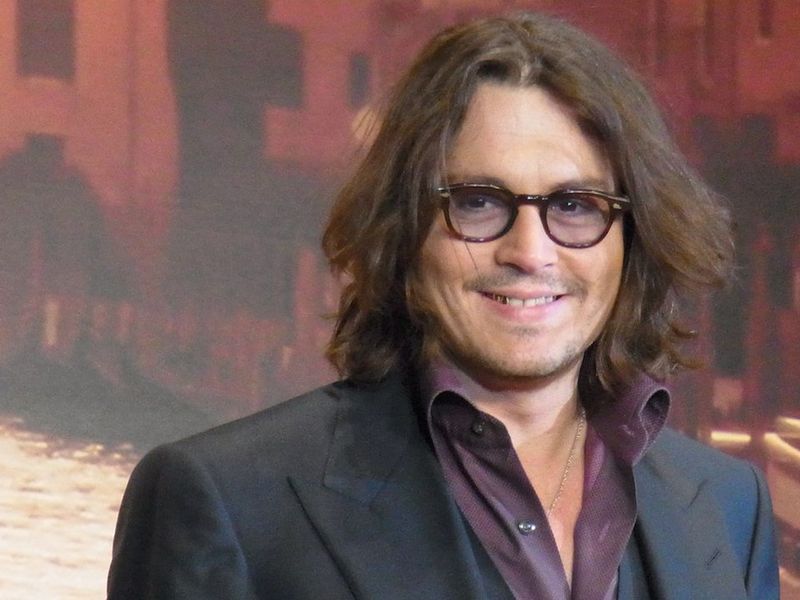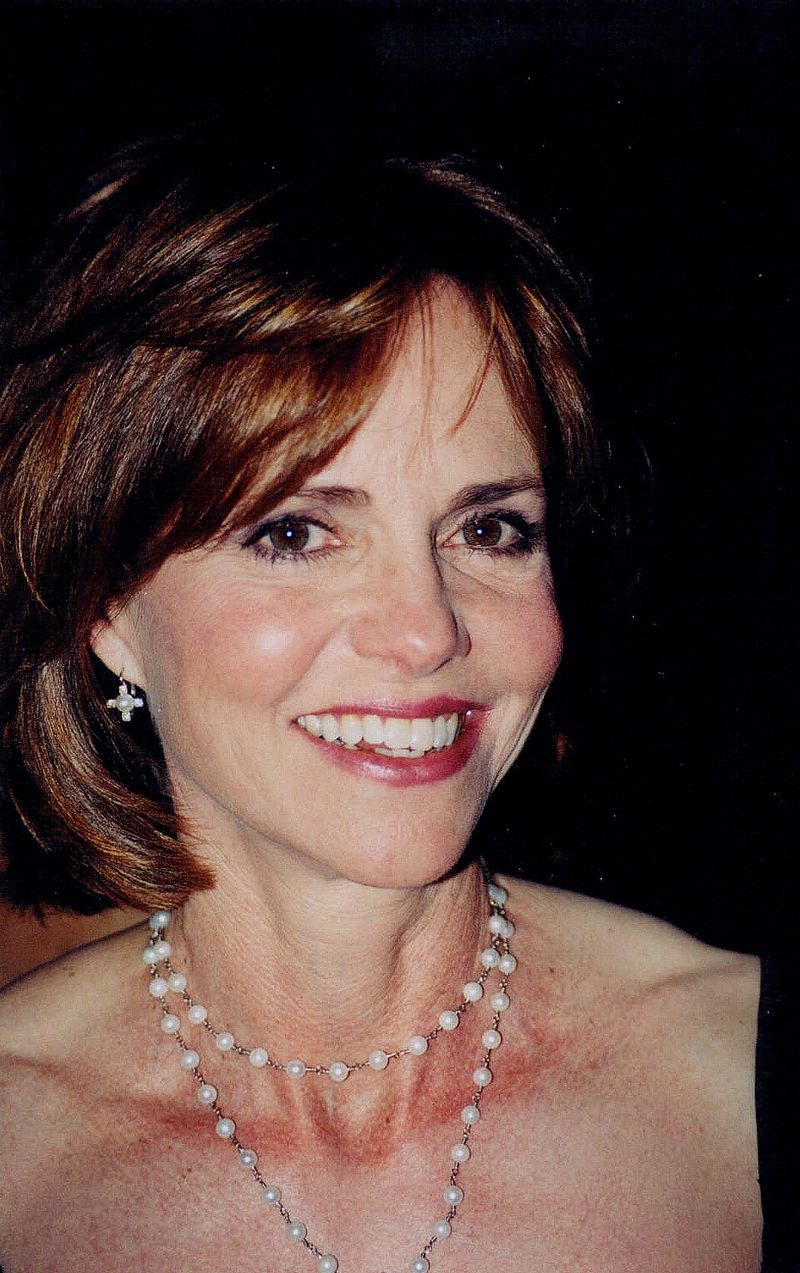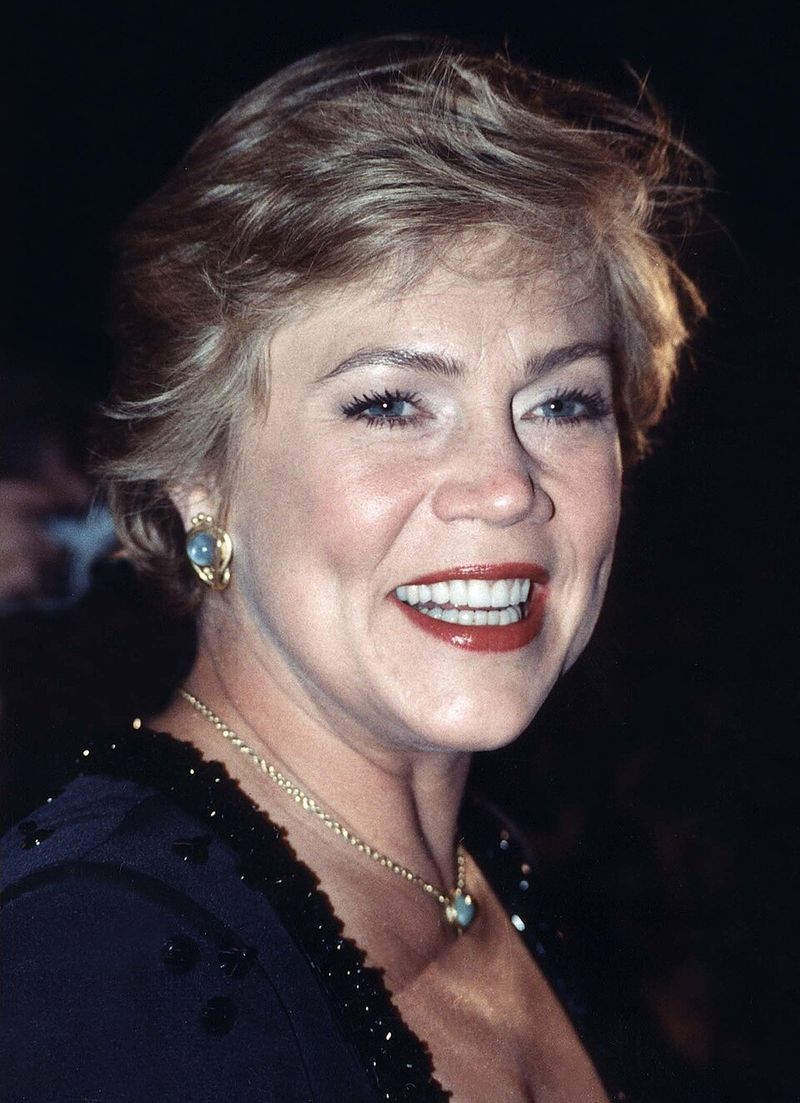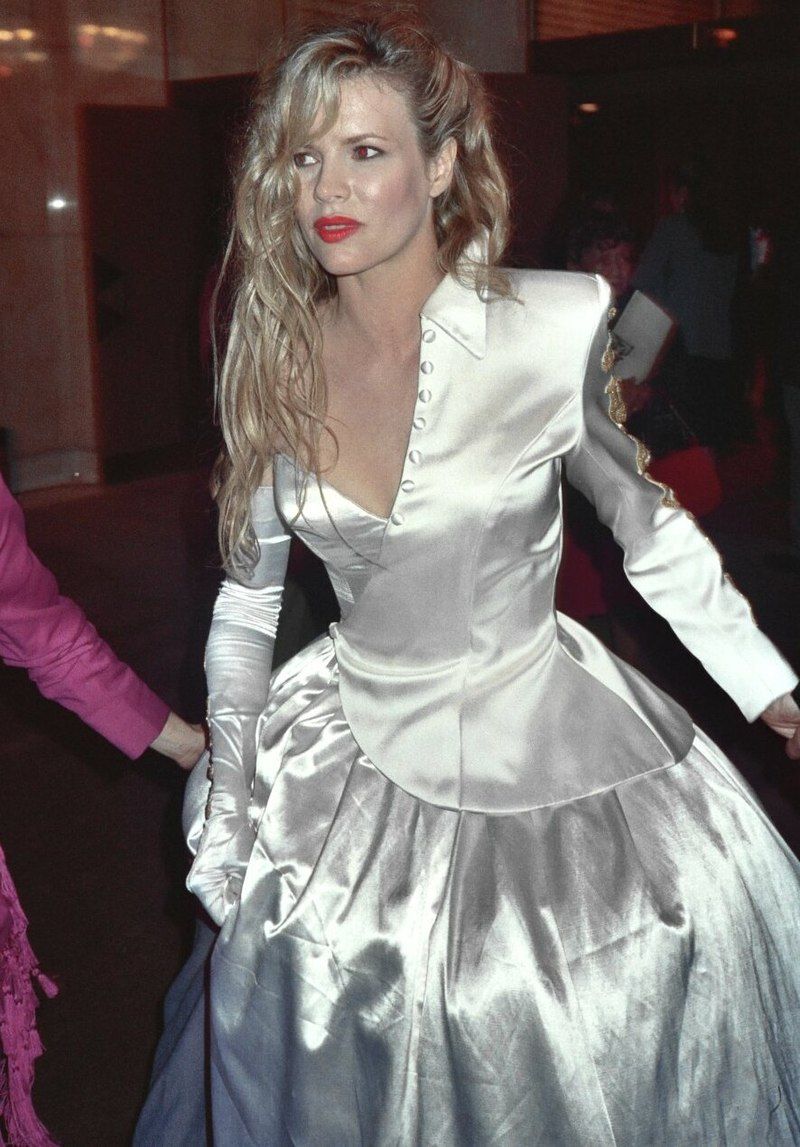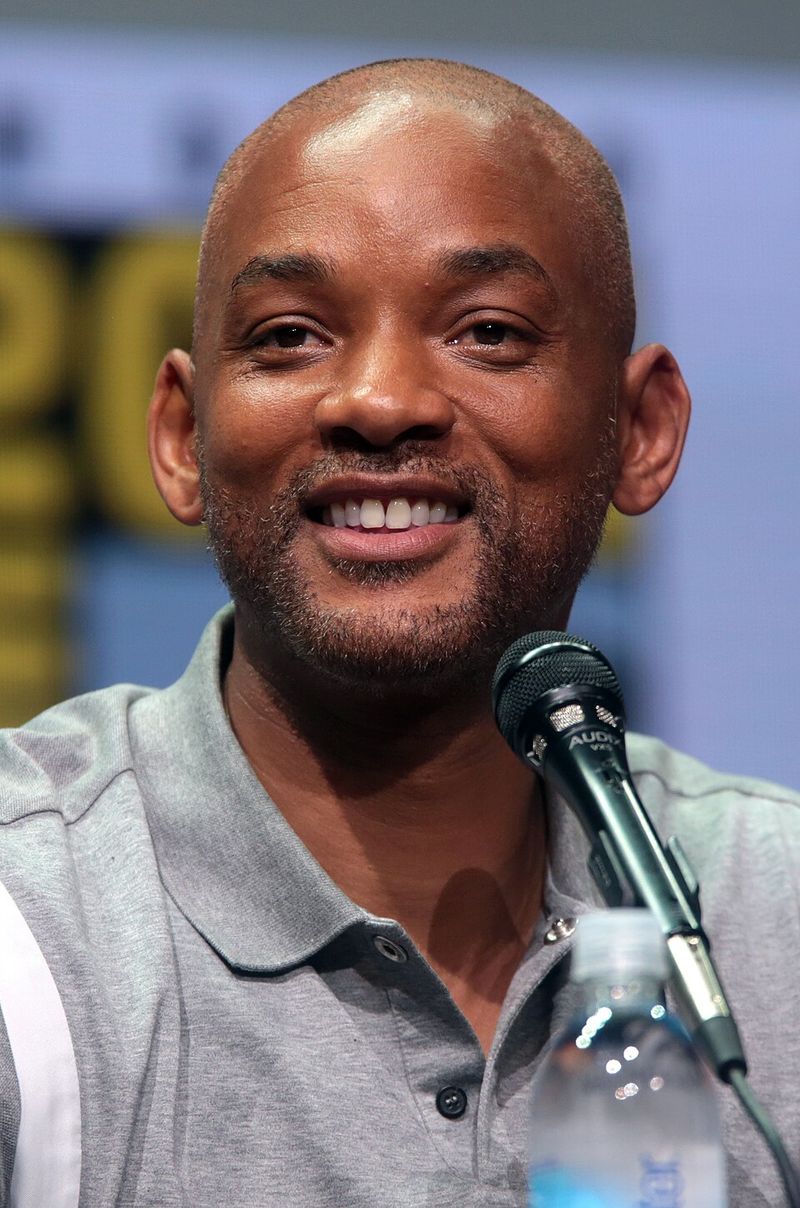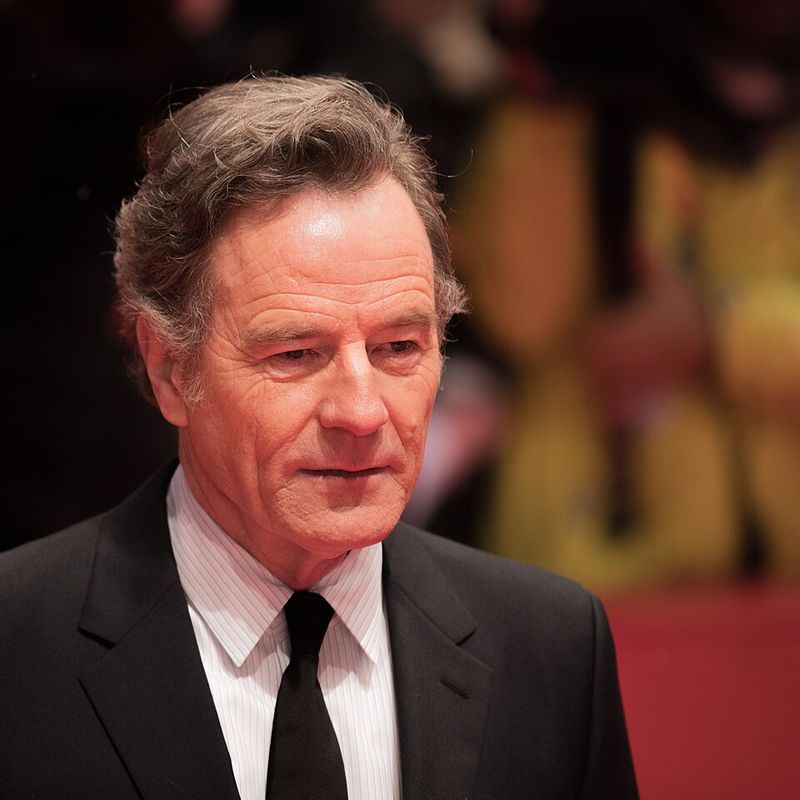Hollywood has seen countless actors make the jump from television to the big screen, but only a select few have truly become legends. These stars started in our living rooms, winning hearts on weekly TV shows before conquering movie theaters worldwide. Their journeys prove that small-screen success can be the perfect launchpad for cinematic greatness.
Tom Hanks
Before winning multiple Oscars and becoming America’s favorite everyman, Hanks wore dresses on the quirky sitcom Bosom Buddies from 1980 to 1982. The show featured him and co-star Peter Scolari disguising themselves as women to live in an affordable apartment building. Though the series lasted only two seasons, it showcased Hanks’ natural comedic timing and likability.
His film career exploded with hits like Splash, Big, and eventually dramatic triumphs including Philadelphia and Forrest Gump. Today, he stands as one of Hollywood’s most respected and bankable stars. His transformation from TV comedian to cinema legend remains one of the industry’s greatest success stories.
Robin Williams
An alien named Mork launched Williams into superstardom when Mork & Mindy premiered in 1978. His manic energy, rapid-fire improvisation, and rubber-faced expressions made the show an instant hit that ran until 1982. Williams brought such originality to the role that many of his ad-libbed lines made it into episodes.
Film directors quickly recognized his genius, casting him in movies like Good Morning, Vietnam, where his DJ character allowed similar improvisational freedom. He balanced comedy and drama brilliantly in films such as Dead Poets Society, Mrs. Doubtfire, and Good Will Hunting, which earned him an Oscar. His legacy spans both mediums magnificently.
John Travolta
Travolta’s breakout came as the charming Vinnie Barbarino on Welcome Back, Kotter, which aired from 1975 to 1979. His character was one of the lovable Sweathogs, a group of remedial students with hearts of gold and plenty of attitude. The show made him a teen idol and opened doors to film opportunities.
He seized those opportunities with both hands, starring in Saturday Night Fever and Grease, which became cultural phenomena. After a career slump, Quentin Tarantino revived his status with Pulp Fiction in 1994. Travolta’s ability to reinvent himself proved he belonged among cinema’s elite performers.
Denzel Washington
Washington honed his craft playing Dr. Phillip Chandler on the critically acclaimed medical drama St. Elsewhere for six seasons. The show ran from 1982 to 1988 and gave him steady work while building his acting chops. His performance displayed the intensity and dignity that would define his film career.
Transitioning to movies, he earned acclaim in Cry Freedom and won his first Oscar for Glory. He continued dominating with powerful performances in Malcolm X, Training Day, and Fences. Washington’s commanding presence and unwavering commitment to excellence have made him one of the most respected actors of his generation, bridging television beginnings to film immortality.
Meg Ryan
Ryan started her acting journey in daytime television, appearing on the soap opera As the World Turns in the early 1980s. Soap operas provided excellent training grounds for young actors, teaching them to work quickly and convey emotion convincingly. She learned her craft well during these formative years.
Her girl-next-door charm translated perfectly to romantic comedies like When Harry Met Sally, which made her a household name. That famous deli scene became iconic, cementing her status as the queen of rom-coms. Films like Sleepless in Seattle and You’ve Got Mail followed, making her one of the 1990s’ biggest stars and proving soap opera roots could lead to major stardom.
George Clooney
Clooney struggled through failed TV pilots and minor roles before landing Dr. Doug Ross on ER in 1994. The medical drama became a massive hit, and his portrayal of the charming pediatrician made him a heartthrob. He stayed with the show for five seasons while carefully selecting film projects.
His movie career skyrocketed with roles in Out of Sight, the Ocean’s trilogy, and Syriana, which won him an Oscar. Beyond acting, he became a successful director and producer, earning respect throughout Hollywood. Clooney represents the complete package: talent, charisma, and intelligence that transformed television success into lasting cinematic legend status.
Steve McQueen
McQueen played bounty hunter Josh Randall in the Western series Wanted: Dead or Alive from 1958 to 1961. His cool demeanor and distinctive sawed-off Winchester rifle made the character memorable. The role showcased the quiet intensity that would become his trademark in films.
He transitioned to movies and became the epitome of cool in action classics like Bullitt, The Great Escape, and The Magnificent Seven. That legendary car chase in Bullitt remains one of cinema’s most thrilling sequences. McQueen’s anti-hero persona and understated acting style influenced generations of actors, proving that television Westerns could produce genuine movie legends.
Clint Eastwood
Eastwood spent seven years as Rowdy Yates on the cattle-drive Western Rawhide, which aired from 1959 to 1965. Though not the lead initially, his character became increasingly prominent as the series progressed. The steady work provided financial security and valuable screen time.
Italian director Sergio Leone cast him in A Fistful of Dollars, launching the spaghetti Western craze and Eastwood’s film career. He became a major star in Dirty Harry and later an acclaimed director with films like Unforgiven and Million Dollar Baby. His journey from television cowboy to Oscar-winning filmmaker represents one of entertainment’s most impressive career arcs.
Michael Douglas
Douglas starred alongside Karl Malden in The Streets of San Francisco from 1972 to 1976, playing Inspector Steve Keller. The buddy-cop drama was popular and gave Douglas visibility, though he was initially known mainly as Kirk Douglas’s son. He used the show as a stepping stone while developing his producing skills.
His producing talents emerged with One Flew Over the Cuckoo’s Nest, which won Best Picture, before starring in hits like Romancing the Stone and Fatal Attraction. He won an Oscar for playing Gordon Gekko in Wall Street. Douglas successfully balanced acting and producing, creating a film legacy that far exceeded his television beginnings.
Bruce Willis
Willis was a struggling actor doing beer commercials before landing David Addison on Moonlighting in 1985. His chemistry with co-star Cybill Shepherd and his wisecracking delivery made the detective comedy a sensation. The show earned him an Emmy and proved he could carry a series.
Hollywood initially doubted his action-star potential, but Die Hard in 1988 changed everything, creating the modern action hero template. He followed with the Die Hard sequels, Pulp Fiction, The Sixth Sense, and dozens more hits. Willis transformed from TV comedian to one of cinema’s most bankable action stars, showing remarkable range and staying power throughout his career.
Helen Hunt
Hunt had worked steadily in television for years before starring as Jamie Buchman in Mad About You from 1992 to 1999. The sitcom about newlyweds navigating marriage resonated with audiences and earned her four Emmy Awards. Her natural, relatable performance made Jamie one of television’s most beloved characters.
While still doing the show, she took film roles and won the Oscar for As Good as It Gets opposite Jack Nicholson in 1997. She balanced both mediums brilliantly, proving television work didn’t limit film opportunities. Hunt’s talent for portraying authentic, complex women translated seamlessly from small screen to big, earning her lasting respect in both worlds.
Johnny Depp
Depp became a teen idol playing undercover cop Tom Hanson on 21 Jump Street from 1987 to 1990. The show addressed serious issues facing teenagers while maintaining entertainment value. Despite the show’s success and his heartthrob status, Depp felt creatively restricted and eager to take risks.
He deliberately chose quirky film roles to avoid typecasting, starting with Cry-Baby and Edward Scissorhands, which began his collaboration with Tim Burton. His willingness to disappear into unusual characters paid off spectacularly with Pirates of the Caribbean, Finding Neverland, and Sweeney Todd. Depp’s transformation from TV heartthrob to one of cinema’s most versatile actors remains remarkable.
Sally Field
Field started young, playing the title character in the surfing sitcom Gidget in 1965, followed by The Flying Nun from 1967 to 1970. These lighthearted comedies made her famous but typecast her as perky and cute. She worked hard to be taken seriously as a dramatic actress.
Her persistence paid off with powerful film performances in Norma Rae and Places in the Heart, both earning her Academy Awards. She gave her famous “You like me!” acceptance speech that reflected her journey from sitcom star to respected actress. Field’s determination to transcend her television image and prove her dramatic abilities resulted in one of Hollywood’s most inspiring career transformations.
Kathleen Turner
Turner appeared on the daytime soap opera The Doctors in the late 1970s before quickly moving to film. Soap operas often served as training grounds, and she learned to project emotion and memorize lines rapidly. Her distinctive husky voice and striking presence suggested she was destined for bigger things.
Her film debut in Body Heat in 1981 made her an instant star, showcasing her as a femme fatale with intelligence and sensuality. She followed with hits like Romancing the Stone, Prizzi’s Honor, and Peggy Sue Got Married, earning Oscar nominations. Turner’s rapid transition from daytime television to A-list movie star demonstrated that talent and timing could accelerate careers dramatically.
Kim Basinger
Basinger began her career as a model before transitioning to television with appearances in series and TV movies during the late 1970s. Shows like Charlie’s Angels and Dog and Cat gave her early acting experience. Her stunning looks opened doors, but she worked to develop genuine acting skills.
She broke into films with Never Say Never Again and became a major star in 9½ Weeks and Batman. Her performance in L.A. Confidential earned her an Academy Award, proving she was far more than just a beautiful face. Basinger’s evolution from television guest spots to Oscar winner showed dedication to craft beyond initial opportunities.
Will Smith
Smith was already a successful rapper when he starred in The Fresh Prince of Bel-Air from 1990 to 1996. The sitcom showcased his natural charisma and comedic timing, making him a television star. The show’s theme song became iconic, and his character’s journey from Philadelphia to Beverly Hills resonated with viewers.
He transitioned to films with Bad Boys and Independence Day, becoming one of Hollywood’s biggest box-office draws. Hits like Men in Black, Ali, and The Pursuit of Happyness demonstrated his range. Smith’s transformation from rapper to TV star to movie superstar represents one of entertainment’s most successful multi-platform careers.
Jennifer Aniston
Aniston struggled with failed television pilots before landing Rachel Green on Friends in 1994. The sitcom became a cultural phenomenon, running for ten seasons and making all six cast members superstars. Her haircut became a trend, and her character’s relationship with Ross captivated millions of viewers worldwide.
Despite Friends‘ massive success, her film career took time to develop, with romantic comedies like The Break-Up and Marley & Me performing well. She proved her dramatic abilities in independent films such as The Good Girl and Cake. Aniston successfully navigated the challenging transition from ensemble TV star to leading film actress while maintaining her television legacy.
Bryan Cranston
Cranston spent years as a character actor and comedic dad on Malcolm in the Middle before landing Walter White on Breaking Bad in 2008. The dramatic role transformed his career at age 52, proving it’s never too late for reinvention. His portrayal of a chemistry teacher turned drug lord earned him four Emmy Awards.
The show’s critical acclaim opened film opportunities, including Argo, Trumbo, and The Upside. He received an Oscar nomination for Trumbo, playing blacklisted screenwriter Dalton Trumbo. Cranston’s late-career transformation from sitcom dad to dramatic powerhouse and film actor inspires performers everywhere, showing that persistence and talent eventually triumph.
